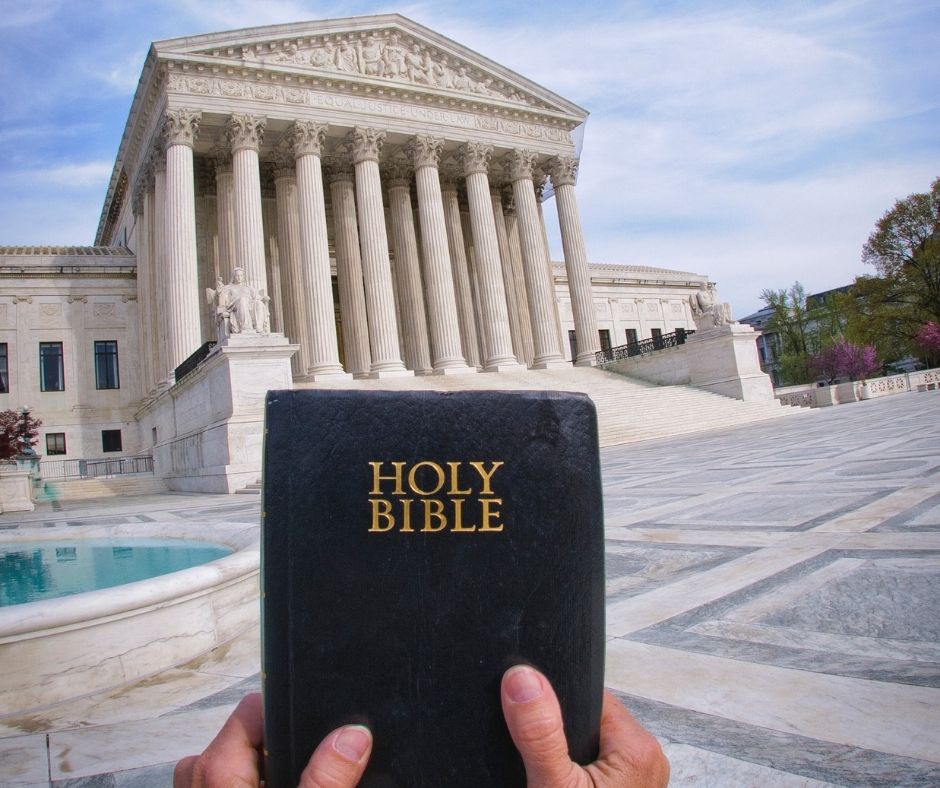On Thursday, the U.S. Supreme Court ruled 9-0 in favor of a former postal carrier who was forced to quit his job at the U.S. Postal Service for not working on Sundays, which he considers to be a day of worship and rest where work is prohibited, according to his Christian faith.
The High Court also overruled its previous 1977 “undue burden” de minimis standard from Trans World Airlines, Inc. v. Hardison and stated that it clearly imposes unique – and unlawful – burdens on religious discrimination claimants. In fact, the High Court ruled that “an employer must show that the burden of granting an accommodation would result in substantial increased costs in relation to the conduct of its particular business.”
The questions presented in Gerald Groff v. Louis DeJoy, Postmaster General, United States Postal Service were:
1. Whether the High Court should disapprove the more-than-de-minimis-cost test for refusing Title VII religious accommodations stated in Trans World Airlines, Inc. v. Hardison;
2. Whether an employer may demonstrate “undue hardship on the conduct of the employer’s business” under Title VII merely by showing that the requested accommodation burdens the employee’s co-workers rather than the business itself.
Justice Samuel Alito wrote the unanimous opinion and Justice Sotomayor filed a concurring opinion, in which Justice Jackson joined. The High Court’s opinion is unanimous that the de minimis test is an improper understanding of Title VII’s explicit language —”undue hardship.”
The High Court threw out the Third Circuit Court of Appeal’s decision rejecting a claim made by Gerald Groff, a former mail carrier in Pennsylvania, that Groff’s work absences placed too much of a hardship on his co-workers and employer. The Justices sent the case back to the lower court to reconsider the matter.
Justice Alito wrote, “We hold that showing ‘more than a de minimis cost,’ as that phrase is used in common parlance, does not suffice to establish ‘undue hardship’ under Title VII. Hardison cannot be reduced to that one phrase. In describing an employer’s ‘undue hardship’ defense, Hardison referred repeatedly to ‘substantial’ burdens, and that formulation better explains the decision. We therefore, like the parties, understand Hardison to mean that ‘undue hardship’ is shown when a burden is substantial in the overall context of an employer’s business.”
“Here, the key statutory term is ‘undue hardship.’ In common parlance, a ‘hardship’ is, at a minimum, ‘something hard to bear.’…But under any definition, a hardship is more severe than a mere burden. So even if Title VII said only that an employer need not be made to suffer a ‘hardship,’ an employer could not escape liability simply by showing that an accommodation would impose some sort of additional costs. Those costs would have to rise to the level of hardship, and adding the modifier ‘undue’ means that the requisite burden, privation, or adversity must rise to an ‘excessive’ or ‘unjustifiable’ level,” wrote Justice Alito.
The High Court also wrote, “An employer who fails to provide an accommodation has a defense only if the hardship is ‘undue,’ and a hardship that is attributable to employee animosity to a particular religion, to religion in general, or to the very notion of accommodating religious practice cannot be considered ‘undue.’ If bias or hostility to a religious practice or a religious accommodation provided a defense to a reasonable accommodation claim, Title VII would be at war with itself.”
“Title VII requires that an employer reasonably accommodate an employee’s practice of religion, not merely that it assess the reasonableness of a particular possible accommodation or accommodations.”
Liberty Counsel filed an amicus brief in the case which argued that Hardison’s de minimis test makes a mockery of Title VII and discriminates against religion. Hardison’s de minimis test requires only de minimis cost to excuse religious discrimination instead of protecting employees’ religious rights.
Groff previously worked overseas as a missionary. When he returned to the United States, he looked for a job where he would not have to work Sundays. Considering “Sunday” to be the “Sabbath,” Groff believes it is his sacred obligation to “remember the Sabbath day, to keep it holy” and to follow the commandment “six days you shall labor, and do all your work, but the seventh day is a Sabbath to the Lord your God” (Exodus 20:8-10). In 2012, Groff became employed as an auxiliary USPS postal carrier in Lancaster County, Pennsylvania.
However, USPS contracted in 2013 with Amazon to deliver packages and employees were required to take Sunday shifts for weekend deliveries. Groff then asked for a religious accommodation. The postmaster granted his request, and Groff agreed to work extra shifts during the week. He even transferred to another branch that did not deliver on Sundays and accepted a lower position to be able to abide by his faith. Then USPS changed its position, took away the religious accommodation and started scheduling him to work Sundays. Being forced to choose between his faith and his job, Groff had no choice but to resign in 2019.
Groff sued USPS under Title VII of the Civil Rights Act of 1964, claiming USPS failed to reasonably accommodate his religion because the shift swaps did not fully eliminate the conflict. The district court concluded the requested accommodation would pose an undue hardship on USPS and granted summary judgment for USPS. The U.S. Court of Appeals for the Third Circuit affirmed.
Title VII prohibits an employer from discriminating against an employee on the basis of religion unless the employer is unable to reasonably accommodate the employee’s religious exercise without undue hardship to its business. However, according to a standard set forth in Trans World Airlines, Inc. v. Hardison, accommodation is not required if it imposes more than de minimis cost on the employer.
Liberty Counsel Founder and Chairman Mat Staver said, “Today marks the end of the era of religious discrimination caused by hostility towards religious claimants under Title VII. The Supreme Court rightfully relegated the de minimis test for religious discrimination to the dustbin of history and restored claims of religious discrimination to their rightful place of protection under Title VII.”
















